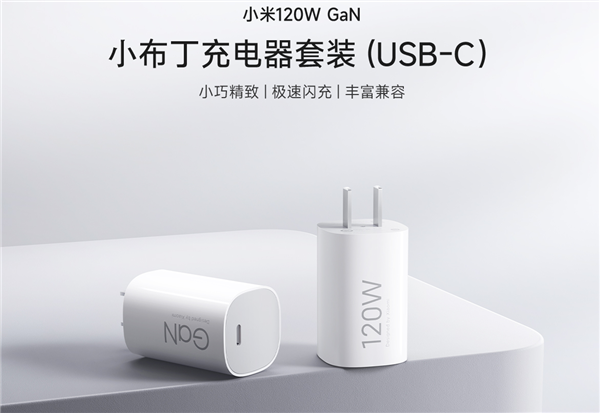It is normal for the charging head to heat up during charging. When the charger is plugged into the power supply and connected to an electronic device, the charging head will start to work, providing stable charging power by converting and adjusting voltage and current. This process When it comes to energy transfer, electronic devices obtain power from the charging head for charging. During this process, the charging head receives relatively large amounts of power and heat, so the charging head will deposit heat, causing the temperature to rise.

#The operating environment of this article: Windows 10 system, dell g3 computer.
When charging, it is normal for the charger to generate heat, which is related to the current intensity output by the charger and the ambient temperature. The charger has resistance, and part of the electrical energy of the transformer in the charger is converted into heat energy.
Now, chargers have become an indispensable part of our lives. We use chargers to charge electronic devices such as mobile phones, tablets, computers, and cameras. However, when we plug in the charger, will we notice the problem of charging head preheating? This is an issue worthy of our attention, because many people are worried that overheating of the charging head may affect electronic equipment or personal safety. But in fact, it is not necessarily a bad thing for the charger to get hot. In some cases, it is even a normal phenomenon.
Cause of heating:
We need to clearly understand a problem, that is, the heat of the charger is generated during work. When we plug the charger into the power source and connect it to the electronic device, the charging head will start to work, providing stable charging power by converting and regulating voltage and current. This process involves energy transfer, and the electronic device obtains power from the charging head to charge. During this process, the charging head receives relatively large amounts of electricity and heat, so the charging head will deposit heat, causing the temperature to rise.
There are many reasons why the charger gets hot. One possibility is that the charger is overloaded. When the charger is overloaded, it will become extremely hot and may overheat seriously. At this time, the power needs to be cut off in time to avoid safety hazards. However, in most cases, the heat of the charger is caused by normal working conditions. To avoid malfunction or damage, they have a self-protection function to ensure that the current range and voltage change within the set range. In this case, slight heat It's normal.
What we need to make clear is that different chargers will have different heating conditions. For example, fast chargers are more likely to generate heat than regular chargers because they provide higher current and voltage values for faster charging. Of course, if the temperature of the charger is too high, you need to stop using it in time and send the charger for repair or replacement to ensure the safety of individuals and items.
Summary:
It is a normal phenomenon for the charging head to heat up when working, because the charging head needs to heat the battery, electronic equipment and the charger itself. However, if the temperature of the charging head is too high, you need to stop using it in time and find an appropriate solution. If you always feel uneasy, you can also choose some brands of excellent charging heads. They have better heat dissipation and protection systems and can better ensure the safety of use. Finally, we need to remind everyone that when the charger is hot, pay attention to the environment in which it is used. Do not use the charger in flammable, explosive, humid and other conditions to avoid accidents
The above is the detailed content of Is it normal for the charger head to get hot when charging?. For more information, please follow other related articles on the PHP Chinese website!
![当充电器插入时笔记本电脑发出蜂鸣声[修复]](https://img.php.cn/upload/article/000/887/227/170840269053057.jpg) 当充电器插入时笔记本电脑发出蜂鸣声[修复]Feb 20, 2024 pm 12:18 PM
当充电器插入时笔记本电脑发出蜂鸣声[修复]Feb 20, 2024 pm 12:18 PM如果您的Windows笔记本电脑在连接充电器时发出蜂鸣声,可能是由于电源适配器或电池出现问题引起的。您可以尝试更换不同的充电器或检查电池健康状况。另外,清洁充电插口也可能有助于解决问题。如果问题仍然存在,建议联系厂家或专业技术人员进行进一步检查和维护。为什么我的充电器发出哔哔的声音?充电器发出嘟嘟声可能与设备或电池故障有关,建议检查充电器、适配器、端口和电池是否正常运作。修复插入充电器时笔记本电脑发出的蜂鸣音如果您的Windows11/10笔记本电脑在插入充电器时发出蜂鸣音,请使用以下建议来解决
 199元!小米120W氮化镓小布丁充电器套装发布:支持UFCS融合快充Apr 07, 2024 am 11:46 AM
199元!小米120W氮化镓小布丁充电器套装发布:支持UFCS融合快充Apr 07, 2024 am 11:46 AM4月7日消息,日前,小米推出120W氮化镓小布丁充电器套装,首发价199元,套装内含一根1.5米双USB-C6A快充数据线。ID设计上,充电器采用圆润造型设计,尺寸为34*34*53mm,顶部为USB-C接口,相比小米常规120W氮化镓充电器体积缩小42%,外出携带更方便。兼容方面,除兼容PS3.0/2.0、QC3.0/2.0外,还支持UFCS1.0融合快充协议,可为其他非小米手机提供大功率快充,解决互配快充不兼容的问题。据悉,充电器可智能识别输出电流,能为耳机、平板、手表、笔记本等设备充电,为
 酷态科15号充电器产生质量问题,官方承诺可退换并延长质保期至2年Jan 15, 2024 pm 08:15 PM
酷态科15号充电器产生质量问题,官方承诺可退换并延长质保期至2年Jan 15, 2024 pm 08:15 PM1月15日消息,近段时间,国产充电宝、充电头市场也开始内卷,尤其是闪极、酷态科、努比亚等厂商推出了不少性价比、产品力备受好评的新品。其中,酷态科15号就是一个爆款产品,因为独特的外观设计、丰富的接口协议和高功率等方面非常受关注,尤其是性价比较高,发售至今依然供不应求。需要注意的是,近期部分首批产品的用户反馈存在一些问题,官方对此迅速发文回应,并宣布了补偿政策。官方介绍,首批产品因为协议的问题,导致PD3.1部分设备无法触发快充,推荐使用官方附赠的充电线或专门支持PD3.1的充电线,也可联系客服进
 华为超级快充无线车充(Max 80W)上架:双线圈智能开合,售价 399 元Mar 02, 2024 am 10:00 AM
华为超级快充无线车充(Max 80W)上架:双线圈智能开合,售价 399 元Mar 02, 2024 am 10:00 AM感谢网友很宅很怕生的线索投递!3月1日消息,华为超级快充无线车充(Max80W)已于京东上架,曜石灰配色,采用双线圈设计、3D风冷散热、支持智能开合,售价399元。该充电器使用双线圈3D风冷设计,可兼容折叠机型,至高支持80W无线超级快充,设计与近期亮相的华为超级快充立式无线充电器(Max80W)近似。该充电器支持智能开合功能,宣称可以实现单手操作。车辆熄火后,30分钟内仍可感应解锁。华为超级快充无线车充(Max80W)支持出风口格栅挂钩配合三角支架固定,与仪表台粘贴底座安装两种方式,可兼容更多
![插入充电器时鼠标会跳跃[修复]](https://img.php.cn/upload/article/000/887/227/170835319235361.jpg) 插入充电器时鼠标会跳跃[修复]Feb 19, 2024 pm 10:33 PM
插入充电器时鼠标会跳跃[修复]Feb 19, 2024 pm 10:33 PM如果您在插入充电器时发现鼠标光标出现跳动问题,本文提供的解决方法可能会对您有所帮助。有报道称,在连接充电器到笔记本电脑时,鼠标光标可能会表现得不稳定,跳跃、选择和意外点击。电源问题通常是导致这种情况的最常见原因之一。为什么我的鼠标在充电时会出问题?笔记本电脑鼠标故障可能源于多个原因,如电池、充电器、充电器砖等故障。另外,墙上插座的接线问题也是常见原因。插入充电器后,鼠标会跳跃如果您的鼠标在插入充电器时跳动,请使用以下建议。执行硬重置试试另一个充电器运行电池测试更新或重新安装所需的驱动程序将充电器
 67w充电器可以给别的手机充电吗Nov 24, 2022 am 10:35 AM
67w充电器可以给别的手机充电吗Nov 24, 2022 am 10:35 AM67w充电器可以给别的手机充电;因为在充电器的内部有智能芯片,它可以自动识别手机所需的电压和电流,从而智能地调整所需,最终输出安全的电流,保障手机的正常充电。
 lovesn是什么牌子的充电器Oct 12, 2022 pm 03:00 PM
lovesn是什么牌子的充电器Oct 12, 2022 pm 03:00 PMlovesn是海韵牌子的充电器。海韵Lovesn智能USB充电器,官方型号为C20,能提供5V,2.1A的输出,兼容100至240v宽幅电压充电;海韵充电器的特点在于其能通过内置的智能芯片检测出被充电设备已有电量,从而自动调节自身的输出电流,在根本上提升被充电设备的电池使用寿命,以及缩短被充电设备的充电时间。
 pd充电是什么意思Nov 07, 2022 pm 05:14 PM
pd充电是什么意思Nov 07, 2022 pm 05:14 PMpd充电是指使用PD充电器充电。pd全称“USB-PD”,是由USB-IF组织制定的一种快速充电规范,是一种快充协议,可以提高电压和电流,最高充电速率可达100w。pd快充协议可以透过 USB 电缆和连接器增加电力的输送,扩展USB应用中的电缆总线供电能力,从而达到提高充电电压或电流的目的,并且可以自由改变电力的输送方向。

Hot AI Tools

Undresser.AI Undress
AI-powered app for creating realistic nude photos

AI Clothes Remover
Online AI tool for removing clothes from photos.

Undress AI Tool
Undress images for free

Clothoff.io
AI clothes remover

AI Hentai Generator
Generate AI Hentai for free.

Hot Article

Hot Tools

SAP NetWeaver Server Adapter for Eclipse
Integrate Eclipse with SAP NetWeaver application server.

EditPlus Chinese cracked version
Small size, syntax highlighting, does not support code prompt function

Dreamweaver Mac version
Visual web development tools

Notepad++7.3.1
Easy-to-use and free code editor

VSCode Windows 64-bit Download
A free and powerful IDE editor launched by Microsoft






